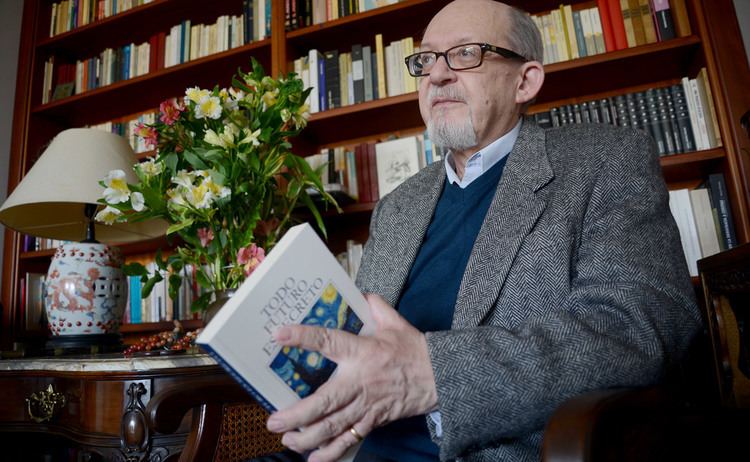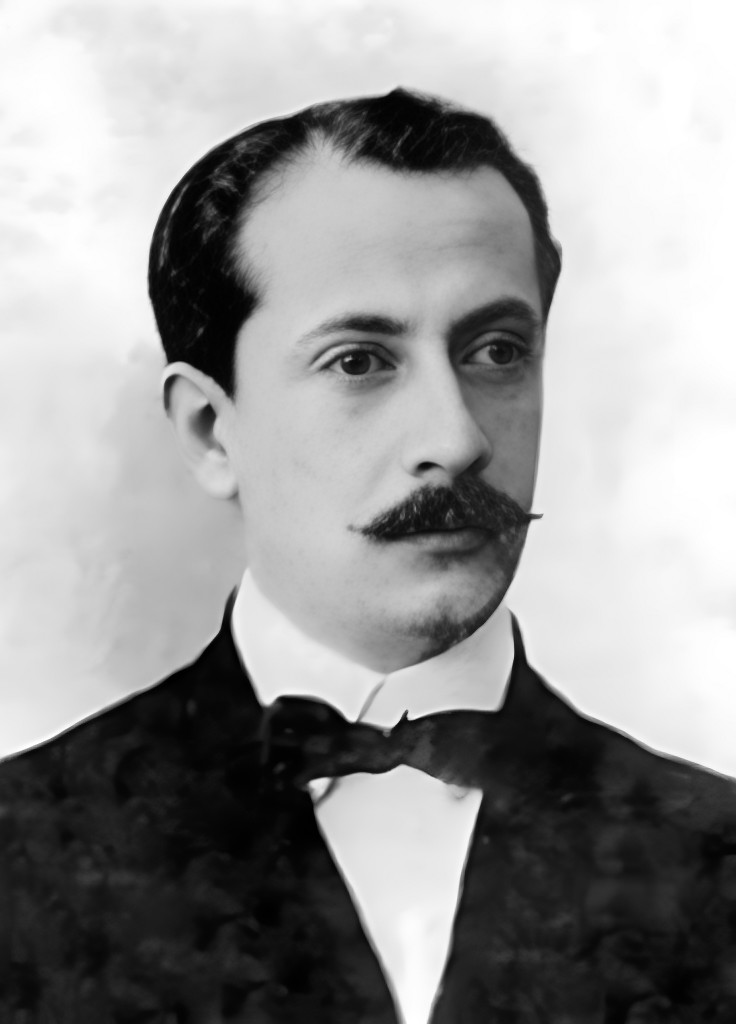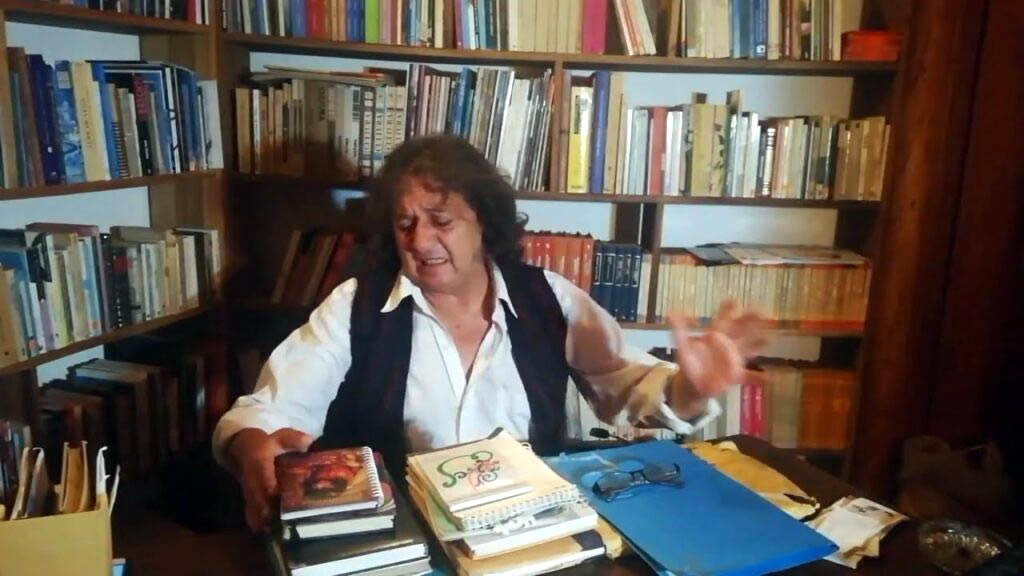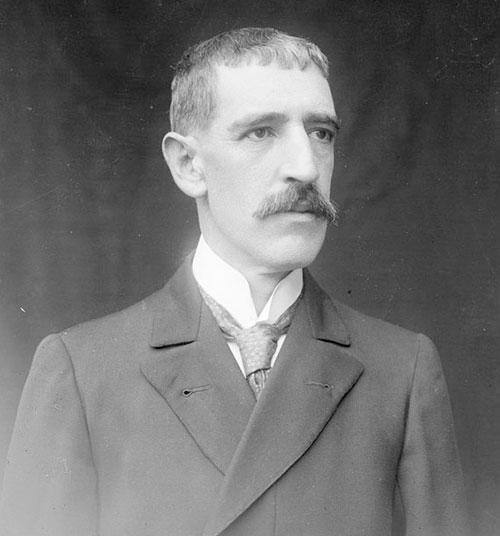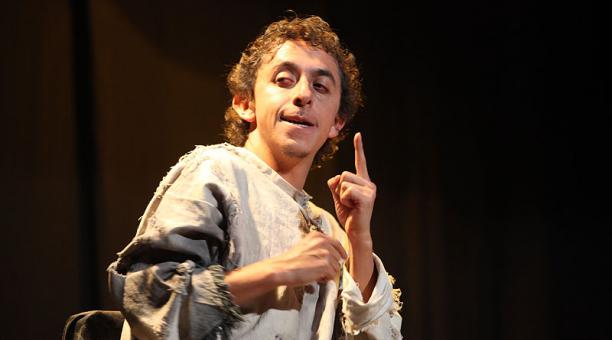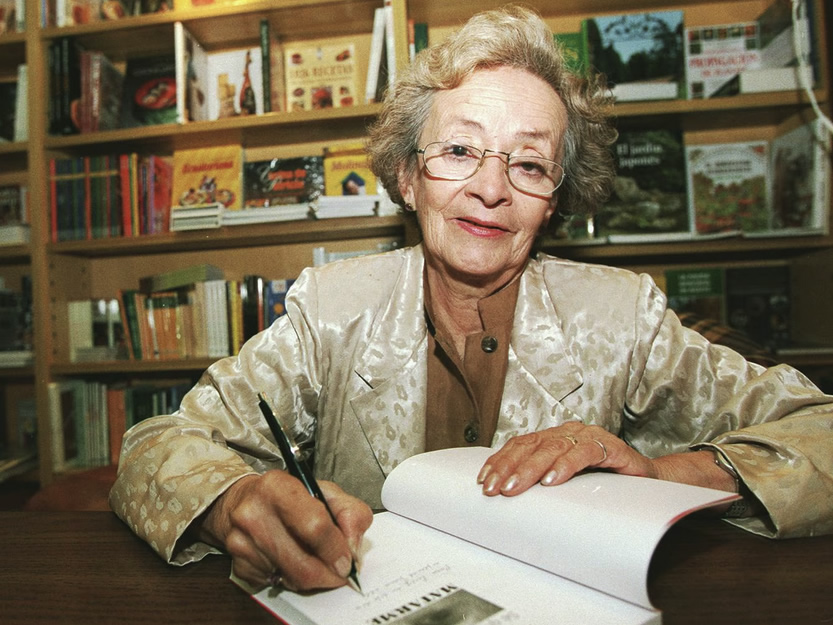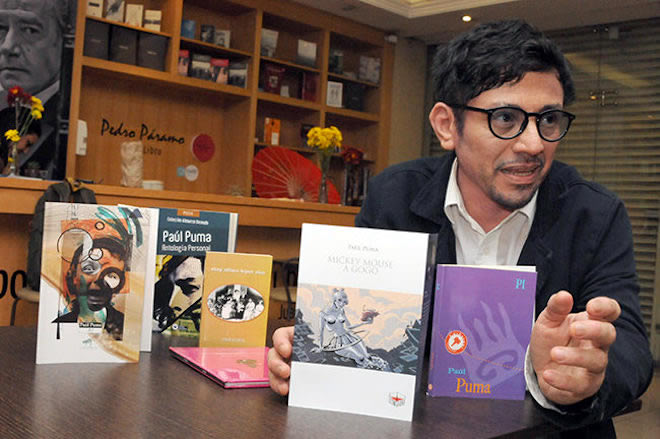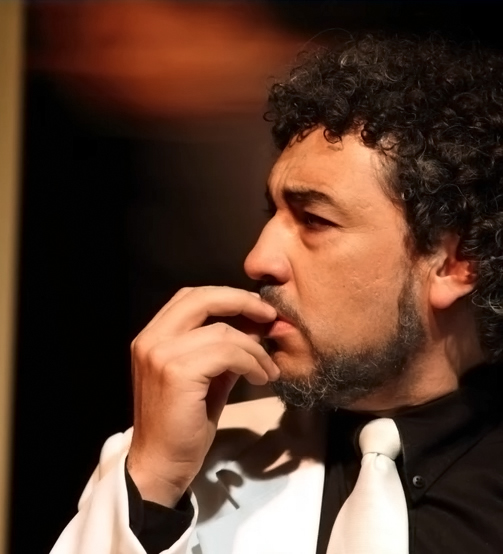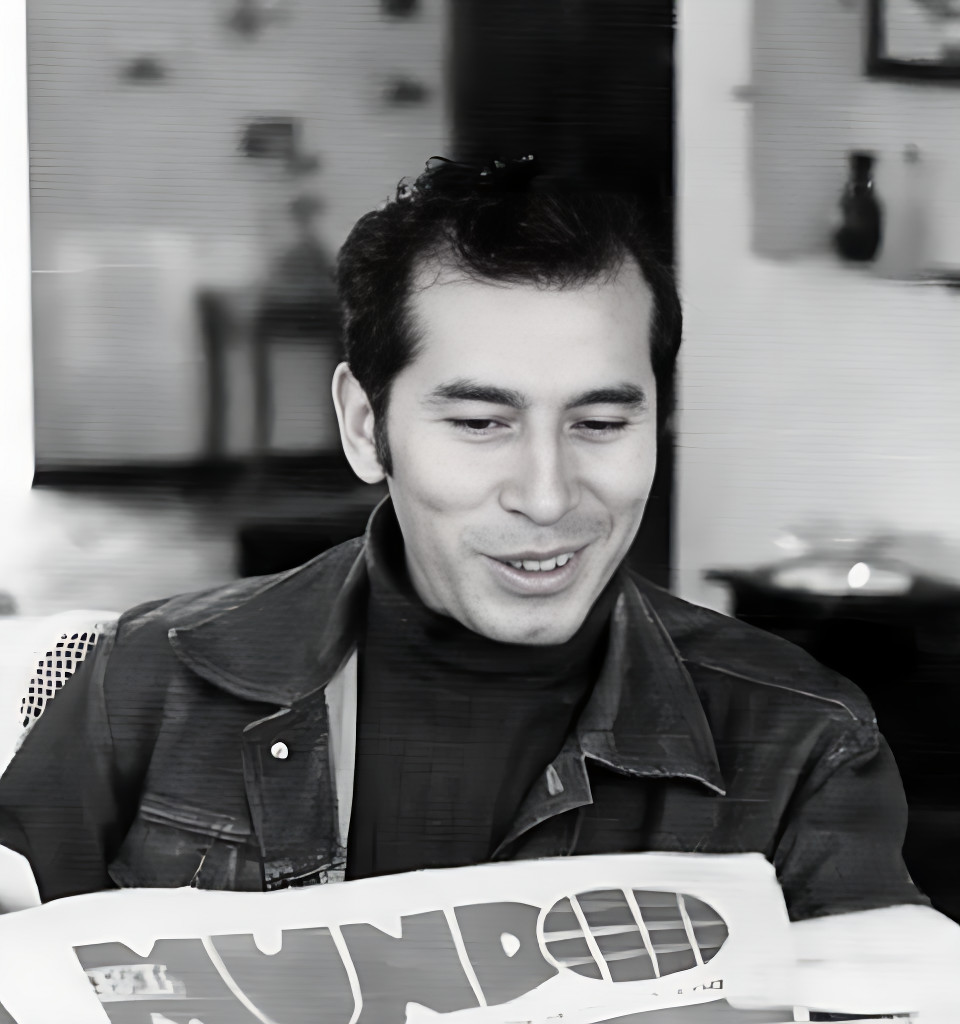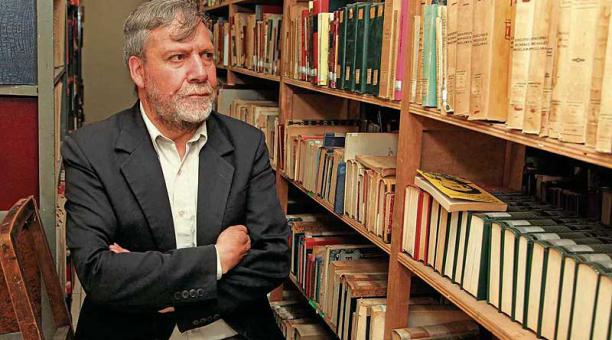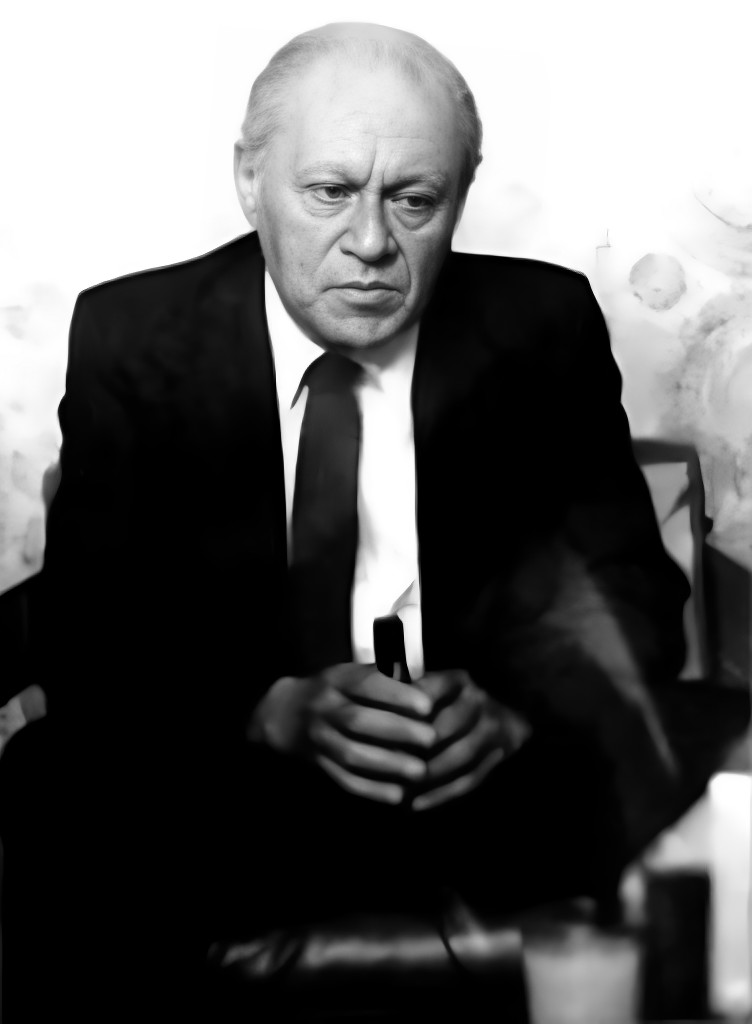Juan Andrade Heymann (Quito, December 18, 1945) is an Ecuadorian writer, novelist, short story writer, poet, and playwright. His short story El lagarto en la mano (1965) and his novel Las tertulias de San Li Tun (1993) expressed social change.
Continue reading “Juan Andrade Heymann”Category: Playwrights
Rafael Pino Roca
Rafael Pino Roca (Guayaquil, October 24, 1878 – Guayaquil, 1963) was an Ecuadorian poet, playwright, and diplomat. Educated in Germany, he became fluent in multiple languages and developed a deep admiration for European culture. Pino Roca held key government roles, including Minister of War, Navy, and Aviation, where he helped establish Ecuador’s first aviation school. His literary works, notably the epic poem Canto a la Raza, gained wide acclaim. He also served as Ecuador’s Consul in Europe and was known for his controversial pro-German stance during the prelude to World War II.
Continue reading “Rafael Pino Roca”Patricio Vallejo Aristizábal
Patricio Vallejo Aristizábal (Quito, 1964) is an Ecuadorian actor, director, dramaturg, playwright, and professor. In 2013, his play Caminando sobre arenas movedizas (2012) won the Joaquín Gallegos Lara Prize. He has written books on theater, such as Teatro y vida cotidiana (2003), El teatro político y la figura del Inca (2003), and La Niebla Y La Montaña: Tratado Sobre El Teatro Ecuatoriano Desde Sus Orígenes (2011). In 2001, the House of Ecuadorian Culture bestowed on Vallejo the “National Theatrical Merit Award.”
Continue reading “Patricio Vallejo Aristizábal”Octavio Cordero Palacios
Octavio Cordero Palacios (Santa Rosa, Azuay, May 3, 1870 – Cuenca, December 17, 1930) was an Ecuadorian writer, poet, playwright, mathematician, lawyer, professor, and inventor. Known for his early literary works such as Gazul (1890) and Los Hijos de Atahualpa (1891), he was also a prolific translator, famously rendering Edgar Allan Poe’s The Raven into Spanish. A graduate of the Universidad de Cuenca, he practiced law and served as a judge while pursuing his intellectual passions, which included pioneering inventions like the Clave Poligráfica, a mechanical translation device. Today, the town where he was born bears his name.
Continue reading “Octavio Cordero Palacios”Carlos Gallegos
Carlos Gallegos is an Ecuadorian dramatist, stage director and actor from Cuenca who starred in the 2010 film Prometeo deportado (Deporting Prometeo). In 2015, his play Barrio Caleidoscopio (2010), translated into French as Quartier Kaléidoscope, was awarded at the Le Coup de Chapeau festival in Toulouse, France. As the winner of the prize, his play was included in the 2016 programming of the Le Grand Rond theater. Since 2013, Gallegos has resided in France.
Continue reading “Carlos Gallegos”Alicia Yánez Cossío
Alicia Yánez Cossío (Quito, September 10, 1928) is an Ecuadorian novelist, poet, short story writer, and journalist. She is considered one of the 2oth Century’s most important literary figures of Ecuador and Latin America. Since 1991 she has been a member of the Ecuadorian Academy of Language. In 1996, with her novel El cristo feo (1995), Yánez became the first Ecuadorian to win the Sor Juana Inés de la Cruz Prize (Guadalajara, Mexico), one of the most prestigious awards for female authors in the Spanish speaking world. In 2008 she received Ecuador’s highest literary award, the Eugenio Espejo Award, for her lifetime of work.
Continue reading “Alicia Yánez Cossío”Peky Andino
Peky Andino Moscoso (Quito, September 19, 1962) is an Ecuadorian playwright, a screenwriter, television director, actor and poet. Andino’s plays have won several awards, such as the Joaquín Gallegos Lara Prize (2006 and 2011), the National Prize of the Arts, and the Otto Castillo Prize for Experimental and Political Theater. As an actor, he has appeared in Sebastián Cordero’s film “Ratas, ratones, rateros” (1999) and Fernando Mieles’s film “Prometeo deportado” (2011). He has been a screenwriter and director of various TV shows. He is the creator and lead director of the telenovela “Sharon La Hechicera” (2018). Among his best known theatrical pieces is the play Medea llama por cobrar (2006), in which he recreates the drama of Ecuadorian families who had to emigrate during the economic crisis of 1999 through a plot with multiple parallels to Euripides’ Greek tragedy Medea. In 2014 he published his first book of poetry Moscas de plata.
Continue reading “Peky Andino”Paúl Puma
Paúl Puma (Quito, 1972) is an Ecuadorian poet, playwright, and literary critic. He has a master’s in Latin American literature from the Simón Bolívar Andean University, Ecuador, and a PhD from the University of Alicante, Spain. Among his best known works are the poetry book Felipe Guamán Poma de Ayala (winner of the Aurelio Espinosa Pólit Prize, 2002), and the science fiction theatre piece Mickey Mouse a Gogo (winner of the Joaquín Gallegos Lara Prize, 2017). In 2017 Puma published El tesoro de los llanganatis (The Treasure of the Llanganates) with an English translation by Jonathan Simkins.
Continue reading “Paúl Puma”Roberto Sánchez Cazar
Roberto Sánchez Cazar (Quito, 1971) is a Ecuadorian artist celebrated for his extensive contributions to theater, both nationally and internationally. His work spans a variety of roles, from actor and director to educator. Notably, as a playwright, he has enriched the literary landscape with his unique voice and narrative style. His dramatic works have garnered him numerous accolades, including the Aurelio Espinosa Pólit National Literature Prize in 2003. His plays, which have been staged in Ecuador, Colombia, and beyond, delve into universal human themes with an intimate understanding of the complexities of the human condition. Published in various magazines and books across Ecuador, Spain, and the United States, his plays have also found their place in Ibero-American anthologies, showcasing the global resonance of his work. Sánchez Cazar’s enduring dedication to the literary arts continues to inspire, influence, and invigorate the world of contemporary theater.
Continue reading “Roberto Sánchez Cazar”Carlos Benavides Vega
Carlos Benavides Vega, pseudonym: Álvaro San Félix (Guayaquil, March 9, 1931 – Quito, September 29, 1999) was an Ecuadorian poet, actor and playwright. He was a member of Club 7, a Guayaquil-based poets’ group founded in the 1950s. In 1954, Benavides was among one of five members who together published a poetry collection titled “Club 7.” He was a pioneer of historical drama, authoring the plays, “La herida de Dios” (1978; winner of the Aurelio Espinosa Pólit Prize) about Gabriel Garcia Moreno, “Espejo, elias Chushig” (1979), and “Caudillos en llamas” (1980). He also co-wrote “Una loca Estrella,” a historical play about Manuelita Sáenz, with Pedro Saad Herrería.
Continue reading “Carlos Benavides Vega”Eliécer Cárdenas
Eliécer Cárdenas Espinosa (Cañar, December 10, 1950 – Cuenca, September 26, 2021) was a renowned Ecuadorian novelist, playwright, short story writer, and journalist. Best known for his novel Polvo y ceniza (1979), which remains the best-selling novel in Ecuadorian history, Cárdenas’s works often focused on social justice, indigenous struggles, and the working-class experience in Ecuador. His prolific career included over 20 books across multiple genres, with notable accolades such as the House of Ecuadorian Culture Prize for Polvo y ceniza and the Aurelio Espinosa Pólit Prize for his play Morir en Vilcabamba. Cárdenas also served as editor-in-chief of El Tiempo newspaper in Cuenca and was a corresponding member of the Ecuadorian Academy of Language.
Continue reading “Eliécer Cárdenas”Jorge Enrique Adoum – La Caja de Pandora Interviews – Part 1 and 2 (Spanish Audio)
Jorge Enrique Adoum was among Ecuador’s most brilliant writers. In these interviews, made in the latter part of his life, Adoum shares his experiences as a poet, novelist, playwright, politician and diplomat on an Ecuadorian TV program called La Caja de Pandora. Adoum also discusses some of his books, including Ecuador Amargo (1949), Entre Marx y Una Mujer Desnuda (1976), and De Cerca y de Memoria: Lecturas, Autores, Lugares (2002). Adoum was born in Ambato, Ecuador in 1926 and died in Quito, Ecuador on July 3, 2009. He was awarded the nation’s top literary award Premio Eugenio Espejo in 1989.
Demetrio Aguilera Malta
Demetrio Aguilera Malta (Guayaquil, May 24, 1909 – Mexico, December 28, 1981) was a multi-talented artist and diplomat born on May 24, 1909, in Guayaquil, who excelled in various fields such as novel writing, short stories, painting, film making, and playwriting. He gained prominence with his book of short stories “Los que se van: cuentos del cholo y del montubio” in 1930, co-authored with Joaquín Gallegos Lara and Enrique Gil Gilbert. Some of his other noteworthy works include the novels “Don Goyo” (1933), “Seven Serpents and Seven Moons” (1970) which was translated into English by Gregory Rabassa, and “El secuestro del General” (1973). In 1981, he was awarded the Premio Eugenio Espejo, the highest literary honor in the country.
Continue reading “Demetrio Aguilera Malta”
